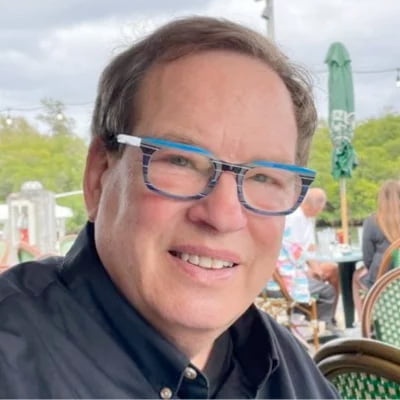Who determines what stories and topics you cover? Is it a producer, an assignment editor, or you? Maybe you subscribe to the idea that the things about which you talk on the radio are determined by what the audience wants to hear, or you want to talk about what you believe the audience needs to hear.
I suppose it depends on what you do. Reporters will go with an editor’s call, opinion hosts with producers, and producers with “what the audience wants to hear.” There’s another element in play, though, and not enough of you consider it. It’s a simple question that should guide not whether you bring something up but how much play you give it.
Does this have any bearing on the lives of our audience?
And a follow-up: If it does have some bearing on the lives of our audience but it’s not immediately apparent, can we include that context in an easily understood manner so that people don’t tune out?
I’ll give you an example of a story getting huge play in the news media and on talk radio that’s detached from the daily lives of most people in the audience, while being part of a larger story that the coverage, and opinions, seem to be completely ignoring.
I’ll preface it by asking another question: Before, say, about three weeks ago, could you have named the President of Harvard? Or Penn? Or MIT? Sure, it’s a news story when a college president is accused of plagiarism, and it’s a news story when three college presidents botched what should have been a gimme question before Congress.
But, taken alone, how much of a story is it? Are they representative of all college administrators? How many of your listeners, readers, or viewers have kids in Harvard, Penn, or MIT, or are alumni? How many of them – how many of you – could even find those schools on a map? (How many can even use a map that isn’t Google Maps these days?)
And how many of you went to college and noted the existence of campus activists and how they’re usually a handful of Sociology majors with petitions on clipboards outside the cafeteria, ignored by most other students? I mean, I was a Political Science major at a Quaker college, and I can’t even remember what the protestors were protesting. They were probably right, but I couldn’t tell you about what. (We were between wars, so that wasn’t it.)
Yet I’ve seen interminable cable news segments with an array of pundits pontificating about campus activism and administrative inaction, radio talk shows railing against Claudine Gay (whose existence was unknown to them before now), and endless articles on every news site about it. Practically all of the coverage — both on radio and TV — is missing the larger context, and, as a result, it’s all meaningless to the audience. It’s news from another planet.
In truth, there is a story worth talking about here, but it’s not just the Harvard thing, it’s about a concerted effort by political interests (surely you’re aware of Christopher Rufo by now, and maybe you’ve heard about what happened at New College in Sarasota) to remove educators from college administration posts and replace them with ideologues in an attempt to push higher education hard to the right. The individual story at Harvard is of zero relevance to most people, but an ideological takeover of public education is a lot more compelling and relevant to a lot more people.
Meanwhile… really, do I have to explain what else is going on that means a lot more to the audience and is probably a lot more compelling and attention-worthy (and entertaining, if you’re an opinion type) than anything to do with Ivy League schools? Look, right this very minute, some stories and topics have a lot more to do with your audience’s lives, stuff they need and want to know about, and it’s astonishing how they get downplayed or both-sided or ignored even by the paper of record.
I’m not suggesting that you ignore what’s trending. I’m not suggesting that you ignore what’s happening on social media. However, I am suggesting that social media is not only not real life, but represents a tiny fraction of public sentiment, even a tiny fraction of the core audience for what you do.
It’s as if the dozen campus radicals and the dozen campus counter-protestors all got hold of megaphones and are screaming at the same time, drowning out everyone else and really annoying the dozen students who are trying to study in their library carrels. The margins get amplified, and important stuff gets lost.
We’re facing some massive challenges in 2024, as an industry, as a nation, as a world (and not necessarily in that order). Focus on what really matters now and in the long run. Everything else? You can report on it, but don’t dwell on it. And whatever the story, context is key. Dig deeper. Look behind the curtain. Use whatever metaphor works for you, but see what you can do to make those trending stories into something more relevant to radio listeners, viewers, and readers. Don’t get distracted.

Perry Michael Simon is a weekly news media columnist for Barrett Media. He previously served as VP and Editor/News-Talk-Sports/Podcast for AllAccess.com. Prior to joining the industry trade publication, Perry spent years in radio working as a Program Director and Operations Manager for KLSX and KLYY in Los Angeles and New Jersey 101.5 in Trenton. He can be found on X (formerly Twitter) @PMSimon.









